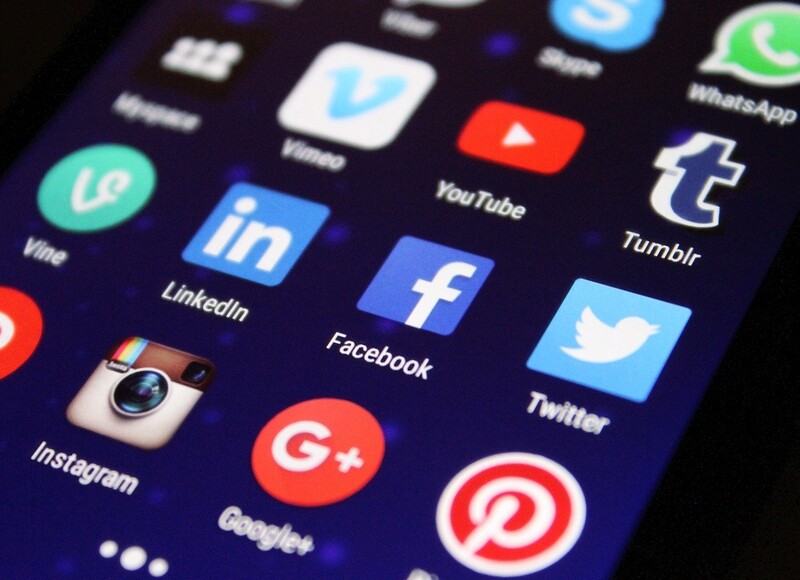
There are many users who feel uncomfortable with the marketing techniques of social media, which have become essential tools in their lives.
“I feel rude every time I update KakaoTalk.” This is the complaining of Mr. Amugae Kim (47, International Finance-ro, Yeongdeungpo-gu, Seoul). This was the case when Kakao recently updated Kakao Talk for’bug fixes and stability improvements’. When I turn on the personal computer (PC), KakaoTalk automatically starts to update, and then a’Update Contents’ window containing the’Set Next as Start Page’ column appears, which is already marked for click. “There’s only a’OK’ button highlighted in yellow next to the click sign, but there are no other selection buttons, such as’reject’ or’cancel update’. “I feel bad as I feel forced to set the following as the starting page.” The Hankyoreh and Digital Research Institute experienced the update process by installing the KakaoTalk program on the laptop. As Mr. Kim said, a window containing only the’OK’ button appears with a click mark on’Set Next as the start page’. However, when I looked closely, there was a faintly’X’-shaped button in the dark gray spear headband. When you click on this part, the window disappears.

KakaoTalk’s update screen. There is no cancel button.
Some point out that “Kakao is doing’fishing’ on the initial screen of Internet access for KakaoTalk users.” According to the experiences of KakaoTalk users, it is considered that the moment the user’bites the bait’ (involuntarily clicks the confirmation button), the user agrees to change the initial screen of Internet access to the next portal. After that, when you connect to the Internet, the first screen of the following portal appears. Another netizen Lee Amugae (53, Amsa-dong, Gangdong-gu, Seoul) had a similar experience when she installed the vaccine program’pill’. After installing the tablet program on the laptop, the initial screen for Internet access changed to’Zoom’. During the program installation process, there was a’Set Zoom as the Start Page’ section, which was the result of clicking the OK button. Moreover, even if the initial screen address was changed in the Windows operating system setting column, it was not returned to the previous state. It was useless to ask for help from an acquaintance who handles computers well. The inconvenience of having to go to the desired website through zoom every time I connected to the Internet continued for more than a year until I replaced the laptop with a new one. Netizens complain that they are experiencing’fishing’ even in the process of using YouTube. When you connect to YouTube, a window asking you to choose between’Later’ and’One Month Free Trial’ appears, and the’One Month Free Trial’ button is highlighted. Premium YouTube is a service that pays a monthly fee instead of viewing ads. If you select’Later’, the same window will appear again the next time you use it. On the part of users, in fact, they are forced to choose until they choose the one-month free trial. The moment you choose a free one-month trial because it’s’annoying’ or’because the window keeps popping up’, you actually become a paid subscriber. Fees are charged from the end of the free trial period. To prevent this, you must apply for termination separately. On the internet bulletin boards, there is a series of articles informing about the cancellation of the free experience along with user complaints stating that “I clicked on the free trial, but the fee came out”. These operators package this as a “marketing act”. In fact, as the performance of’fishing’ and’cheating’, operators have more opportunities to collect revenue and user data. An official from a portal company said, “Please look at it as you are striving to increase users.” Another Internet company’s public relations officer said, “I didn’t know, but it couldn’t have been ordered by the company, and I have to find the employee who came up with the idea and reward it.” Another company employee dismissed, “It allows you to use programs or services for free, but is it polite to accept that amount (fishing)?”

YouTube premium screen. There is no’reject’ button.
In the complaints and articles posted by users on Internet bulletin boards, there are also comments saying,’I use the service for free, but can I afford that much marketing?’ However, most of the netizens responded such as’it is difficult because it is cheating’ and’it is a behavior that looks ridiculously at users’. In a comment on an internet bulletin board, one netizen said, “It is difficult to shake off the feeling of being a’blind fish’ rather than a user. Rather than letting you use the service for free, if you politely ask for the initial screen of Internet access, you can say’Yes!’ I am willing to use it once and for all,” he wrote. Some point out that the act of’fishing’ can legally correspond to the act of’fraud’ or’sell-in’. In fact, when Naver introduced the simple payment function to online shopping malls, it exposed its own services first, and then caused controversy over tying and discrimination and exclusion of competitors. A researcher at a government-funded research institute, who was reluctant to reveal its name, said in a call with “As IT services developed with the emphasis on fostering industries and business operators, the practice of treating users rude has accumulated, and the tendency to be generous in society. This happened. Even after YouTube and Kakao Talk have established themselves as services in people’s lives, they cannot abandon these practices, which leads to increased user dissatisfaction.” Netizens and activists of civic groups consider receiving consent to the collection, use, and provision of personal information in the form of’opt-out’ (set by clicking’agree’ and changing the setting if they do not agree) as a deceitful act. . Oh Byung-il, CEO of the Progressive Network Center, said, “It is aimed at the point where users’ privacy literacy (understanding) is poor. It is difficult to avoid pointing out that it violates users’ right to self-determination of personal information.” Jae-seop Kim, Senior Reporter and Director of Human Science Digital Research Institute [email protected]
